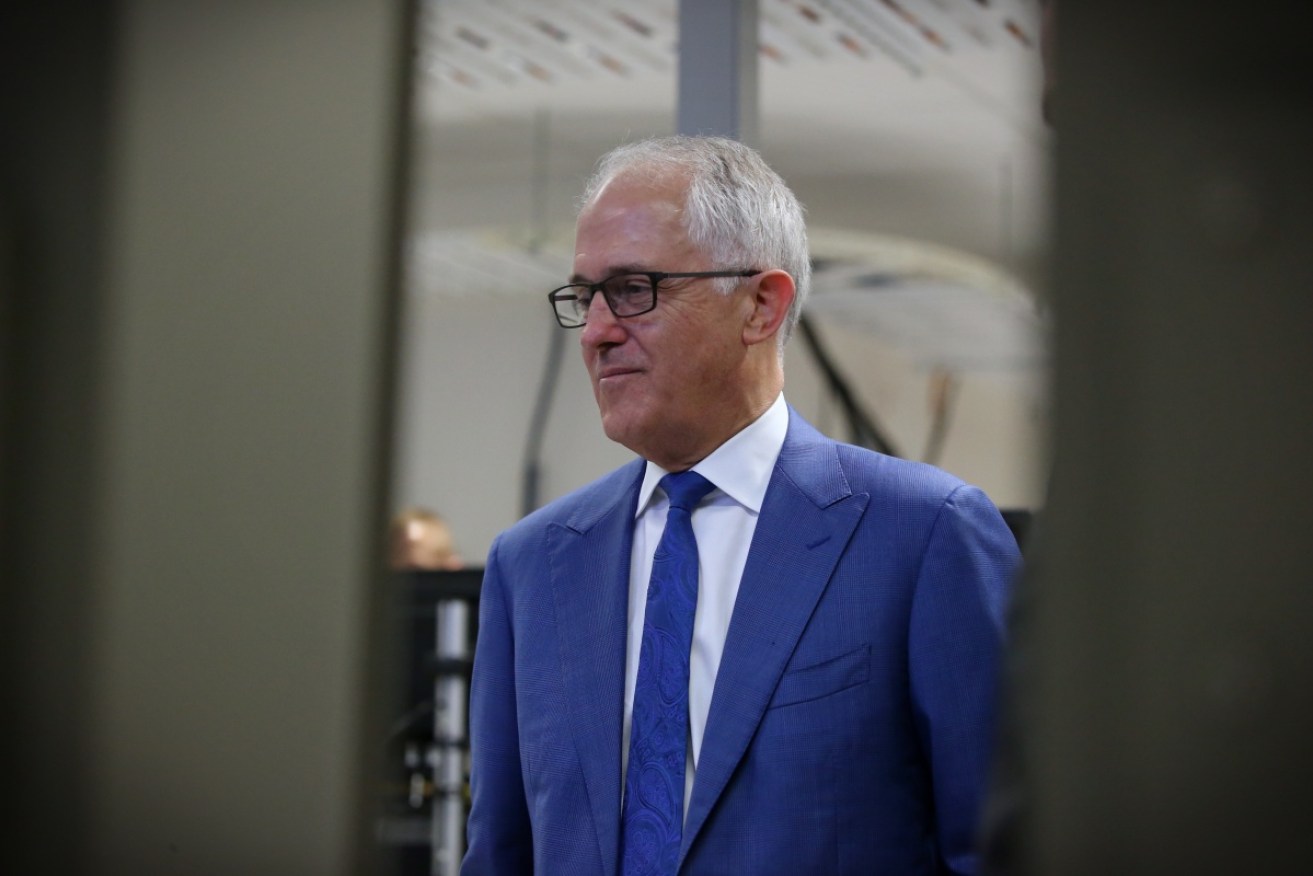There’s no hiding the PM’s capitulation to coal


Prime Minister Malcolm Turnbull campaigning in the Bennelong byelection – a handy distraction from energy policy. Photo: AAP
With all the hubbub over Senate resignations and byelections, it’s been relatively easy for Prime Minister Malcolm Turnbull to avoid scrutiny on what was once the central plank of his political career – climate change action.
In the same week that 127 global political and business leaders gathered in Paris for the One Planet Summit to find ways to accelerate climate change action, the Turnbull government was still busy trying to pull in the other direction.
Just a day before the summit, the government was reluctantly ordering the Australian Energy Market Operator (AEMO) to consider a plan from energy giant AGL which would provide an alternative to keeping open its ancient coal-fired Liddell Power Station.
The government had been pressuring the company to accept public funding to keep the power station open, when for many months the company had tried to politely explain that such a plan was a very bad idea.
The company instead wants to offer the same level of reliable supply, but more cheaply and cleanly, through a combination of peaking gas plants, renewable energy, battery storage and possibly pumped hydro storage – see the full plan here.
That combination of technologies is sometimes referred to as ‘virtual baseload power’, because it can actually offer better reliability that the old coal baseload stations.
As shadow energy minister Mark Butler told journalists on Sunday, the ‘reliable’ nature of coal has been exaggerated.
“In New South Wales and Victoria … very old coal-fired power stations [are] becoming increasingly unreliable with unscheduled outages,” he said.
“For example in Victoria, two of the three remaining coal-fired power stations over recent weeks have had unscheduled outages. And we know when the heatwave in February hit New South Wales that a number of the old, unreliable coal-fired power stations also struggled to keep functioning.”
Modern coal plants would be much better in terms of reliability, but they can no longer match the price of new-build virtual baseload – a point made in the government’s own Finkel Report, which listed wind power backed up with gas peaking plants as the cheapest.
Naturally enough, that’s what AGL would rather rely on because the cheaper reliable energy is to build and run, the more profitable it will be.
Much as the Prime Minister keeps saying his National Energy Guarantee is based on sound “engineering and economics”, AGL actually has the engineers and business analysts to know what’s possible and profitable.
Look at the numbers: AGL says it can build its virtual plant for $1.4 billion, and end up with energy assets that last between 15 and 30 years, delivering reliable power at a ‘levelised cost of energy’ of $83 per megawatt hour.
What the government has been pressuring it to do was to invest $920 million to preserve a creaky old station for five years, delivering energy at $106 per megawatt hour.
Faced with that choice, company directors who ploughed funds into the latter would be living on borrowed time, if not headed for court for abandoning their fiduciary duty to shareholders.
A changed man
This is all a tragic look for Mr Turnbull, once committed to protecting future generations from a future of higher temperatures, more violent weather patterns, disruption of hydrological systems, collapse of agricultural systems, species extinctions and mass displacement of human populations – the baked-in consequences of allowing old fashioned fossil fuel burning to continue.
How did Mr Turnbull morph so completely from the proponent of the carbon pollution reduction scheme in 2009, into a defender of the coal industry?
The answer, sadly, is that he learned how to pander to members of his own party room who don’t seem able to grasp the basics of anthropogenic climate change, or the host of new technologies that offer cheap, viable ways to mitigate some of its worst consequences.
Australia is a small emitter in global terms, granted. But we will share in the misery of climate change in full measure, if less affluent and more populous nations do not cut back on emissions.
Their question for Mr Turnbull would be pretty obvious: if a wealthy, technologically advanced nation like Australia can’t act, why should they?
But it is worse than that. The National Energy Guarantee – the full details of which won’t be seen until next year – looks to be little more than a political trick designed to slow the adoption of cheaper, cleaner technologies and extend the life of coal assets.
AGL’s post-Liddell plan shows that everything is in place for Australia to move to a cleaner, 21st century power network, except for one thing – a PM who can stand up to the anti-economics, anti-engineering forces in his own party room.








